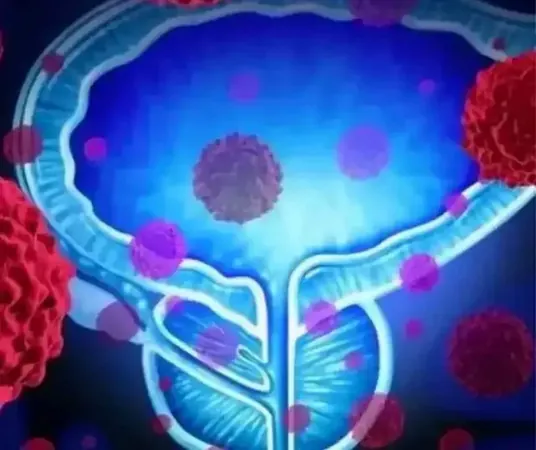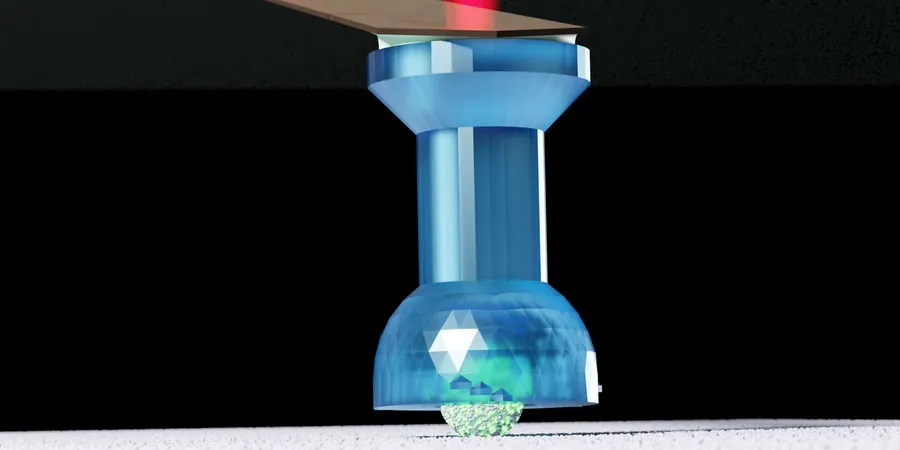
Can AI Revolutionize Prostate Biopsy Decisions for PI-RADS 3 Lesions?
2024-12-09
Author: Jacques
Introduction
Recent advancements in artificial intelligence (AI) are aiming to transform the way doctors make biopsy decisions for patients with PI-RADS 3 lesions identified through magnetic resonance imaging (MRI), according to groundbreaking new research.
Study Overview
Presented at the esteemed Radiological Society of North America (RSNA) conference, this study evaluated the effectiveness of an AI model on 302 PI-RADS lesions from a pool of 248 patients. All subjects underwent MRI/ultrasound-guided fusion biopsy following a multiparametric MRI scan. Remarkably, the researchers found that out of the 302 biopsies conducted, 44 were positive for clinically significant prostate cancer (csPCa).
Key Findings
One of the pivotal findings of the research highlighted that a prostate-specific antigen density (PSAD) greater than 0.15 ng/mL correlated with over a sixfold increased risk of csPCa in PI-RADS 3 lesions, although this method only demonstrated 61% sensitivity. However, integrating the AI model with the PSAD threshold led to a remarkable 17% improvement in sensitivity, resulting in a total of 78%. Furthermore, the model boasted a stunning 93% negative predictive value (NPV).
Expert Commentary
Dr. Omer Esengur, a postdoctoral researcher from the National Institutes of Health’s Molecular Imaging Branch and the study's lead author, emphasized the advantages of combining AI with established biomarkers. "By enhancing our diagnostic capabilities through this bpMRI-based AI model paired with PSAD levels, we are significantly improving the decision-making process for patients facing PI-RADS 3 lesions."
Conclusion
Despite the AI model possessing an overall sensitivity of 57% and specificity of 62% for diagnosing csPCa, its ability to effectively rule out cancer was notable, with an impressive NPV of 89%. "The high negative predictive value of our AI model is vital for reducing unnecessary biopsy procedures," added Esengur and his team.
Future Outlook
As the medical community continues to grapple with the challenges of diagnosing prostate cancer accurately, this innovative research could lead to a future where AI plays a crucial role in tailoring patient care and minimizing invasive procedures. Stay tuned as updates from the RSNA conference continue to emerge, showcasing how technology is rapidly changing the landscape of medical diagnostics!









 Brasil (PT)
Brasil (PT)
 Canada (EN)
Canada (EN)
 Chile (ES)
Chile (ES)
 Česko (CS)
Česko (CS)
 대한민국 (KO)
대한민국 (KO)
 España (ES)
España (ES)
 France (FR)
France (FR)
 Hong Kong (EN)
Hong Kong (EN)
 Italia (IT)
Italia (IT)
 日本 (JA)
日本 (JA)
 Magyarország (HU)
Magyarország (HU)
 Norge (NO)
Norge (NO)
 Polska (PL)
Polska (PL)
 Schweiz (DE)
Schweiz (DE)
 Singapore (EN)
Singapore (EN)
 Sverige (SV)
Sverige (SV)
 Suomi (FI)
Suomi (FI)
 Türkiye (TR)
Türkiye (TR)
 الإمارات العربية المتحدة (AR)
الإمارات العربية المتحدة (AR)